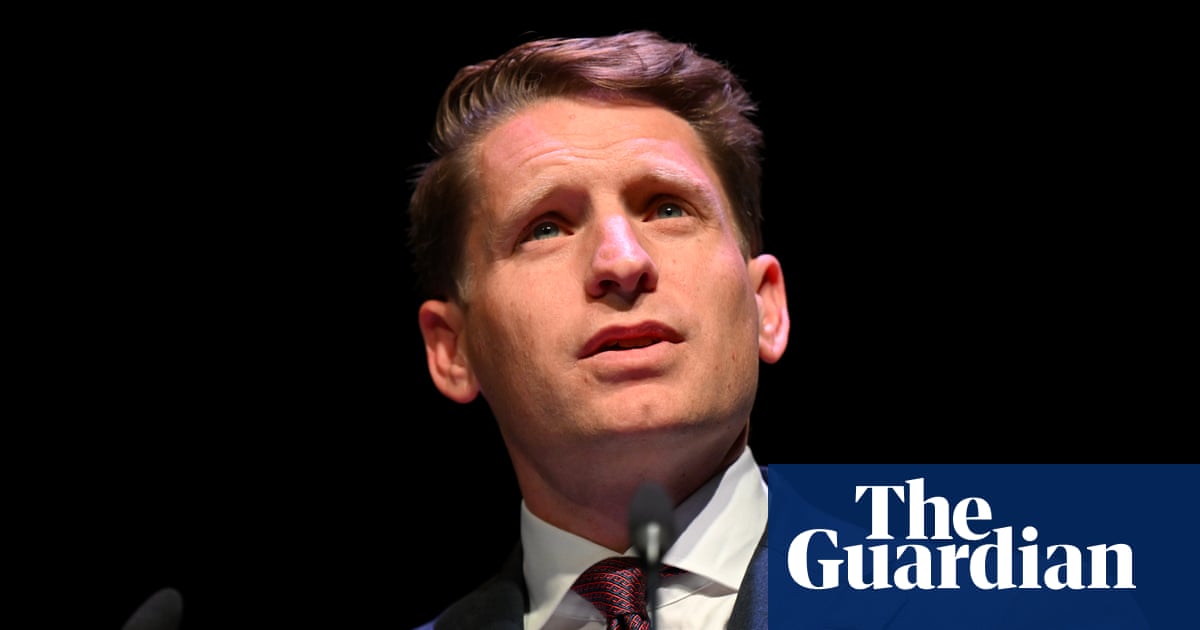The shadow defence minister, Andrew Hastie, has declared his “desire to lead” theLiberal partyin the future after ruling himself out of the race for opposition leader following the Coalition’s crushing election defeat.
The 42-year-old West Australian MP spoke of his leadership ambitions in an interview on the Curtin’s Cast podcast produced by the John Curtin Research Centre, which was published online a day afterSussan Ley was appointed the Liberals’ first ever female leader.
Hastie confirmed last week he would not be a candidate for the Liberal party leadership despite having been urged by colleagues to stand. On Tuesday, Ley was elected by 29 votes to 25 over the former shadow treasurer, Angus Taylor.
Speaking on the podcast with the think-tank’s executive director, Nick Dyrenfurth, and RedBridge Group pollster Kos Samaras, Hastie said he decided not to run for the leadership because of his young children and his long commute from Perth.
“I’d be foolish to say I don’t have a desire to lead, I do have a desire to lead,” he said. “But the timing was all out for personal reasons.”
Hastie said his three children were aged three, seven and nine and that he would “never get those years back”.
Hastie said while the role of opposition leader was “really important”, leadership “can’t be confined to just the position”.
“We’ve also got to lead in the battle of ideas as well,” he said. “And I think that’s where I want to make a contribution.”
“I’m keen to understand the problem that we’re facing as a party and leadership is going to come in many forms over the next three years,” he said. “Sussan Ley’s just made history as the first female leader of the Liberal party.”
Following her appointment, Ley said theCoalitionneeded to meet voters “where they’re at” and promised to reflect on the recent electoral drubbing with humility.
Queensland MP Ted O’Brien, one of the biggest champions of the nuclear power plan the Coalition took to the election, was elected Ley’s deputy.
The outspoken Country Liberal Party senator Jacinta Nampijinpa Pricehad defected from the Nationals to the Liberals in a bid to become the party’s deputy leader should Taylor have beaten Ley.
Asked by Sky News on Tuesday evening if she would remain in the Senate or attempt to switch to the lower house, Price said the Senate was where the “biggest battles are going to be fought right now”.
The Sky host, Chris Kenny, pressed her and by pointing out the Nationals leader, David Littleproud, had talked about his party not being able to satisfy Nampijinpa Price’s ambitions.
“You can get to the top of the Nationals and be deputy prime minister,” he said. “The only job higher than that is prime minister, and to be prime minister, of course, you’d need to go to the lower house.”
Price replied: “Well, there is that, and I know there’s a lot of Australians who’d love to see that, but right now as I said my focus is the Senate.”
